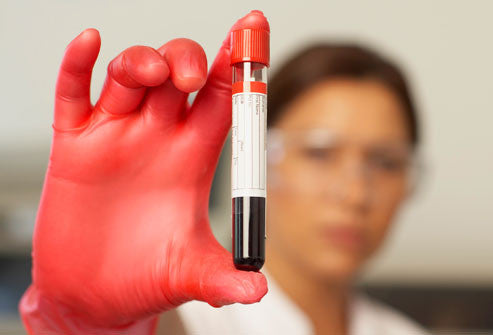CoQ-10: The Mitochondrial Mechanic

By Jared Boynton | 10/28/2016
Let’s address it: CoQ-10 has a daunting name. It’s an ezymatic dietary supplement, but unlike Protease, Lipase, and other enzymatic agents, its name gives absolutely no hints as to what its purpose is in the body; so let’s break it down.
First, let’s address the process it acts upon - CoQ-10 (Coenzyme Q10) is a vital component of the electron transport chain, the mechanism by which your mitochondria produce ATP. Every second of every day, your mitochondria are pumping millions of protons across a membrane during the process aerobic respiration, generating electrical charges for energy which are stored for future use as ATP. This process occurs as the mitochondria metabolize fats, sugars, ketones, and other chemicals with the assistance of oxygen. This process is occurring in every single cell in your body, generating energy that’s gram-for-gram equivalent to 10,000x the energy produced by the sun.
Over time, unfortunately, the mitochondria in your body are subject to mutations that affect their effectiveness; this is one of the downsides of them not sharing a common sequence of DNA with the rest of your cells. Once enough of these mutations occur, they affect the performance of the cells in which they reside - once enough of those cells are affected, the performance of organs themselves begins to suffer. This results in a range of mitochondria-linked diseases, including Alzheimers, male infertility, Huntington’s Disease, cancer, and Parkinsons. Thankfully, we have a method to combat the mitochondrial breakdown: inhibiting the leakage of free radicals.
When introduced into the body through natural generation or exogenous supplementation, Coenzyme Q10 exhibits qualities that both increase the efficiency of the electron transport chain inside the mitochondria (resulting in increases in energy, metabolic rate, and strength) as well as inhibiting oxidation within the mitochondrial processes (reducing free radicals, thus preventing mitochondrial damage and mutations). For you, this means three things - CoQ10 will increase performance, CoQ10 will aid in the repair of metabolic damage due to crash dieting and other factors, and CoQ10 will assist in the prevention of the aforementioned mitochondria-linked diseases.
To put it plainly, CoQ10 should be a staple in every athlete’s supplement regimen. For general health, a dosage of 100-150mg is optimal; for metabolic repair, I’d recommend instituting a dosage of 500-600mg on a short-term basis (30-60 days) in addition to a reverse dieting protocol.
Is it a fix-all? Not whatsoever... but the data at our fingertips paints a picture that is hard to ignore.
@Web: http://www.jaredboynton.com
@Facebook: https://www.facebook.com/coachjaredboynton/
@Instagram: https://www.instagram.com/theironjared/
@Youtube: www.youtube.com/jeboynton
References:
- Mortensen SA, et al, "Coenzyme Q10: clinical benefits with biochemical correlates suggesting a scientific breakthrough in the management of chronic heart failure," Int J Tissue React. 1990;12(3):155-62.
- Faloon, William, "Our Aging Mitochondria," Life Extension, February 2011, pp. 7-13.
- Petersen, Courtney M., et al, "Skeletal Muscle Mitochondria and Aging: A Review," Journal of Aging Research Volume 2012 (2012), Article ID 194821.
Leave a comment
Comments will be approved before showing up.



